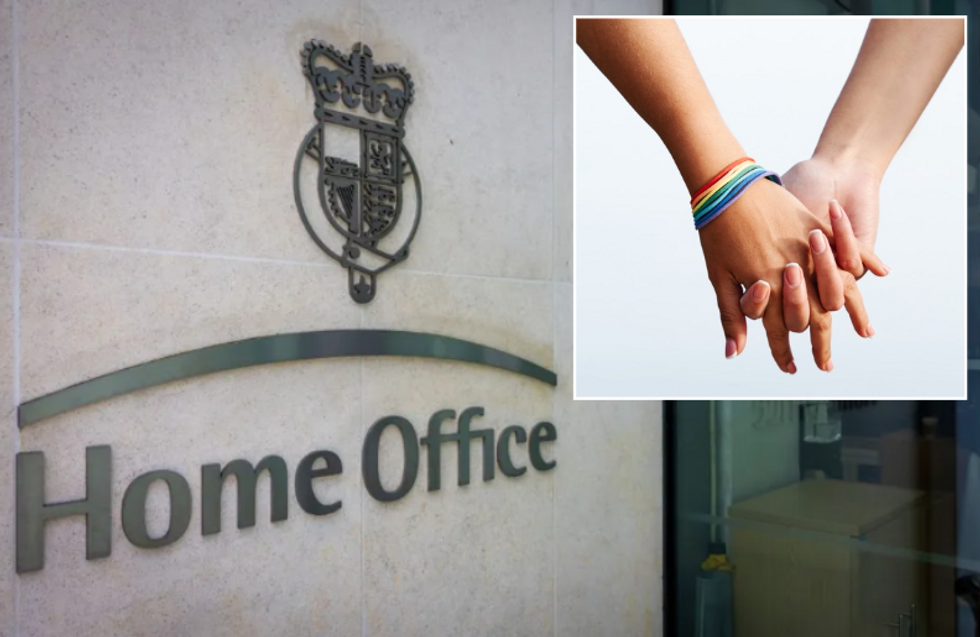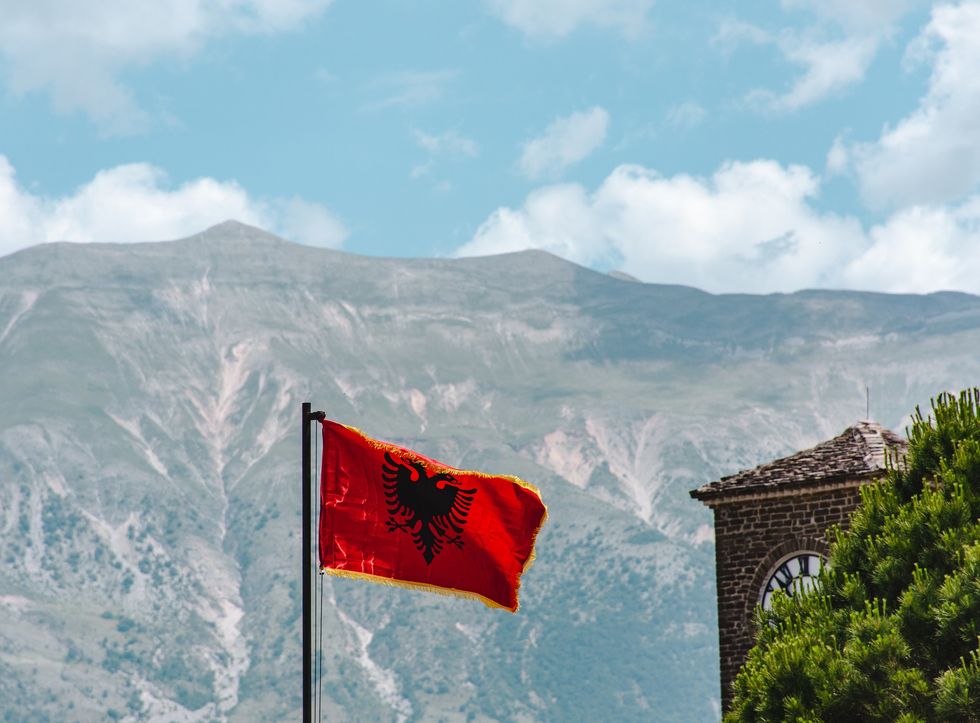'What have lesbians got to do with it' Emily Carver tears into trans campaigner
GB News
Lawyers argued that while homosexuality is legal in Albania, the country’s 'populace' remains 'patriarchal, conservative and male-dominated'
Don't Miss
Most Read
Trending on GB News
A Lesbian couple from Albania are allowed to remain in Britain after claiming they would be targeted in their “homophobic” home country.
Lawyers for the women - who claimed they were targeted after they were spotted kissing in public - stated that while homosexuality is no longer illegal in Albania, the country’s “populace” remains “patriarchal, conservative and male-dominated.”
The Home Office countered by asserting that the events in the women's hometowns should “not be a reflection of what the whole of Albania looks like,” noting that even in “tolerant” places such as the UK, hate crimes occur.
However, a judge dismissed the argument and ruled that the women could remain in the UK on human rights grounds, as they face a “risk of potential discrimination” if returned.

There are currently a record 41,987 outstanding immigration appeals- most based on human rights- which could pose a significant obstacle to Labour’s plans to accelerate the deportation of illegal migrants
GETTY
The case, revealed in court documents, is the latest instance in which failed asylum seekers or foreign nationals with criminal convictions have sought to block deportation, often citing human rights violations.
There are currently a record 41,987 outstanding immigration appeals - mostly based on human rights - which could pose a significant obstacle to Labour’s plans to accelerate the deportation of illegal migrants.
The upper immigration tribunal was also told that the couple were considered victims of trafficking as they had been “abducted by masked men in their hometown, sexually assaulted by multiple men and subjected to physical and verbal abuse on account of their sexual orientation”.
The women claimed this happened after their captors saw them kissing which resulted in their trafficking and assault.
MORE LIKE THIS:
The lawyers contended that there was a “causal link” between the women's sexual orientation, their relationship, and their experience of being trafficked.
They argued that trafficking victims in Albania are “blamed and stigmatised,” which could negatively impact their ability to secure employment.
They further claimed the women had “no confidence” in the existing system in Albania, making it “difficult to see how they could be safely returned.”
Despite being “highly qualified” and “educated,” the lawyers noted that the women have no familial support and face a risk of suicide due to the trauma they endured in Albania.
However, legal representatives for the Home Office maintained that “it is not against the law in Albania to be gay and there are measures to protect individuals who belong to these communities to reach out to the police.”
They added that the women “are able to work, have some form of education and can mitigate being trafficked as support and medication would be there for them.”
Rebecca Chapman, the Deputy Upper Tribunal Judge, pointed to the Balkan state’s country policy information which stated it is a “patriarchal, conservative society in which homophobic attitudes still exist, particularly in rural areas”.
It was noted that individuals in the LGBT+ community encounter barriers to education, employment, housing, healthcare, and access to goods and services because of “prevailing negative attitudes” within society.

Lawyers argued that trafficking victims in Albania are “blamed and stigmatised,” which could negatively impact their ability to secure employment
GETTY
In supporting their asylum claim, the judge ruled that the women could not reasonably be expected to move to another part of Albania, describing it as a small nation “slightly larger than Wales with a population of only 2.8–3 million people.”
Judge Chapman said: “Considering all the factors holistically I find that there is a real risk that the [women] would be subjected to discriminatory measures on account of being former victims of trafficking and lesbians in a same-sex relationship. I find that they would be at risk of potential discrimination by both state and non-state actors.”
She added: “I find that the [women] would be at risk of persecution from the same men who subjected them to previous persecution on the basis of their sexual orientation if they returned to their home area.”







